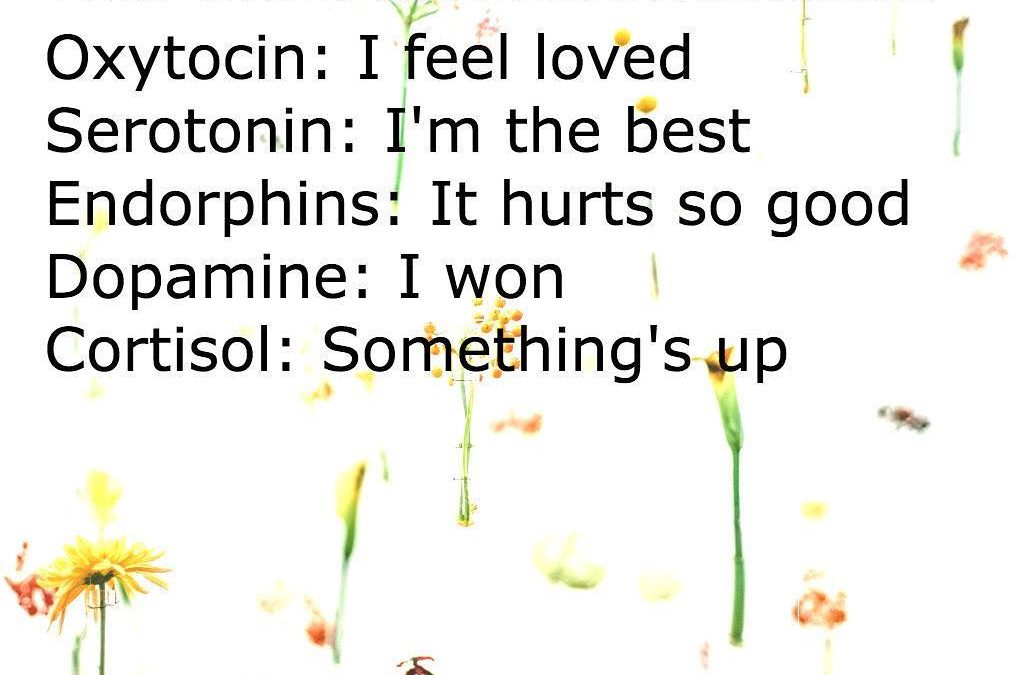More than 1500 studies now show that being self-compassionate, rather than self-critical, is more likely to help us rebound from difficult situations and cultivate more success and happiness over time.
Dr. Paul Gilbert of The Compassionate Mind Foundation describes three interacting emotional systems in the brain, each with their own purpose and mediating neurotransmitters.
The “drive” system is thought to rely heavily on dopamine, compels us to pursue resources, mates, skills, status and so on,
The threat-protection system is fuelled by neuro-adrenalin, which helps us decide to either fight, flee or submit in different circumstances.
The mammalian care-giving system runs on oxytocin and intrinsic opiates, giving us ability to be compassionate to others and also to ourselves.
Unfortunately we have tended to overuse the threat protection system, keeping many of us in a constant state of angst. A growing body of research suggests that practicing self-compassion is an excellent way to cultivate our own caregiving system, calm the nervous system, improve wellbeing and build emotional resiliency.
That is why hundreds of thousands of people are learning and practising Mindful Self-Compassion these days.
For more information about our next scheduled training check https://compassioninspiredhealth.com/mindful-self-compassion/]






